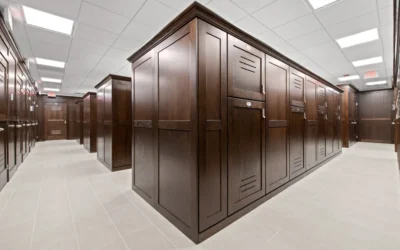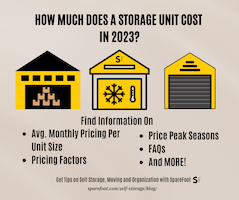Tax season is just around the corner and self-storage owners need to start working on properly filing for their business. Self-storage facilities have a lot of moving parts and can have different investors. This can make properly filing your taxes for your self-storage facility a complicated process. As a partner for a CPA Firm that helps self-storage owners with their taxes, I wanted to share a few tips to better prepare you for the tax season.
1. Manage capital accounts based on operating agreements
Many self-storage facilities are not owned by a single owner but with many different financiers that all bring particular skills to the table. You may have a partner who is very good at promoting the business and other partners who are the main investors in the business. When you have multiple partners in your self-storage facility you must have an operating agreement and your tax filings must match that operating agreement.
Your capital account should track the money each investor put in, track undistributed preferred returns and track the distributions based on how you wrote them in your operating agreement.
Partnership tax law means you need properly maintained capital accounts that are properly filed in an Excel spreadsheet. In short, your books should follow the economics of your business partnerships and follow tax law.
2. Remember why you built your self-storage facility
When you started your self-storage facility, what was the intent of your partnership? Were you looking to build a self-storage facility so you could sell it or did you plan to rent units out?
This question is important because it has important tax implications. Self-storage developers have the highest tax cost because the whole process is taxed as business income. Most developers are okay with this, but you still need to state your intention in your tax filings.
Self-storage owners who plan to rent out their facility and sell down the road have to deal with capital gains tax as well as depreciation recapture. The tax rate can be cheaper under a capital gains play but you have to make your intentions for the business clear before you file your taxes one way or the other.
Now that does not mean once you decide to develop and sell your business or rent it out you can’t change your mind. You can change the intent, the real estate market shifts all the time just make sure you properly file that intent once you change your mind.
3. Use major facility improvements as a write-off opportunity
This is a tax tip that will be really helpful for anyone who has recently completed a major upgrade to their facility. If you make a major improvement to your self-storage facility such as a roof replacement you must capitalize and depreciate that project. The major improvement then allows you to take the cost of the original project (first roof install) and write it off.
This write off can only be used for major improvements so do not try to use it for small repairs such as fixing a leaky roof.
If you don’t need the deduction for some reason you can elect to capitalize repairs on the project as an additional cost to the property.
Consult with your tax advisor about what option is best for you.
4. Practice proper bookkeeping
This one seems fairly obvious but too often we see self-storage owners not practice proper bookkeeping.
You must maintain proper books and records. This means having complete accounting, proper balance sheets, and proper income statements.
Not taking the time to organize your bookkeeping only makes filing your taxes harder.
Tax time can be a complicated and stressful time for many self-storage owners, but taking the time to organize everything and taking advantage of some of these tips will help make it a little easier.
Phil Wuollet, CPA is a Partner at Epstein Schneider, PLC an accounting firm in Scottsdale Arizona. The staff at Epstein and Schneider helps clients with tax compliance as well as developing forward-thinking strategies for reducing and deferring taxes.








